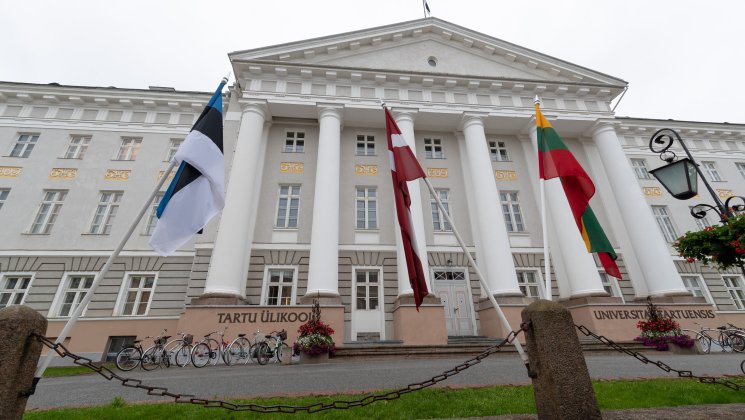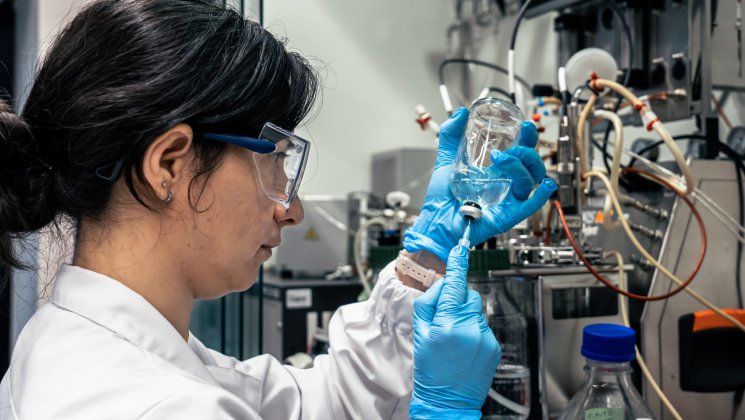Cooperation networks
Institute of Genomics belongs to the following international consortia
European Strategy Forum on the Research Infrastructures project Biobanking and Biomolecular Resources Research Infrastructure (BBMRI–ERIC) is one of the largest health Research Infrastructure in Europe today connecting 16 member states and one international organization.BBMRI-ERIC primarily aims at establishing, operating, and developing a pan-European distributed research infrastructure of biobanks and biomolecular resources. This will facilitate access to biological resources as well as biomedical facilities with an aim to increase the efficacy and excellence of European bio-medical research. The official member of BBMRI-ERIC in Estonia, the Estonian Ministry of Education and Research, has nominated EGCUT to represent Estonia in BBMRI-ERIC activities as a national node.
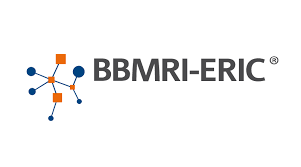
The purpose of ELIXIR is to construct and operate a sustainable infrastructure for biological information in Europe to support life science research and its translation to medicine and the environment, the bio-industries and society. These resources include databases, software tools, training materials, cloud storage and supercomputers. Estonia joined ELIXIR as a full member in December 2013. The Estonian node focuses on developing and maintaining software tools and databases, linking bioinformatics and biobanking, and last but not least, training researchers across borders. The national representative in ELIXIR board is prof. Lili Milan from Institute of Genomics. The ELIXIR Board is the decision-making body in ELIXIR. The Board consist of scientific and administrative representatives from each ELIXIR Member State and EMBL. Members of the Board are authorised to deliberate, negotiate and decide on behalf of the respective Members.
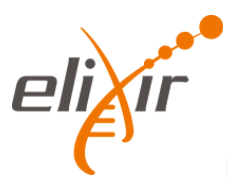
The Nordic Society of Human Genetics and Precision Medicine (NSHG-PM) connects 5 Nordic countries (Finland, Norway, Sweden, Iceland, Denmark) and Estonia. It was created in order to:
- establish a Nordic framework for research into the genetics of human diseases, as well as into human evolution and population history;
- accelerate the discovery of disease susceptibility genes and genes protecting from disease through integrated analyses using multiple large-scale datasets and a range of experimental designs;
- translate these findings so that they can be used for precision medicine to improve public health;
- and uphold and promote the highest legal, regulatory, social, and ethical standards.
NSHG-PM will do this by working with pertinent experts and other stakeholders at local, national and regional levels. The NSHG-PM Council representatives of Estonia are prof. Lili Milani and prof Andres Metspalu from the Institute of Genomics.

European Institute of Innovation & Technology (EIT-Health network) brings together leading healthcare companies across multiple industry sectors, public and private research centres, and top universities, with a clear mission to accelerate entrepreneurship and innovation in healthy living and active ageing, providing Europe´s top talents with new opportunities and resources for the benefit of all citizens. The essential goals of EIT Health are to offer answers to future challenges of healthcare, thus strengthening the European healthcare industry while supporting people in maintaining and managing their health. Institute of genomics is a member of EIT Knowledge and Innovation Community (KIC) consortium EIT-Health since 2015. University of Tartu became a full member of the EIT-Health since 2018.
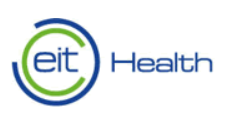
The Global Alliance for Genomics and Health (Global Alliance) was formed to help accelerate the potential of genomic medicine to advance human health. It brings together over 375 leading institutions working in healthcare, research, disease advocacy, life science, and information technology. The partners in the Global Alliance are working together to create a common framework of harmonized approaches to enable the responsible, voluntary, and secure sharing of genomic and clinical data. The Institute of Genomics is member of the Global Alliance since 2015.
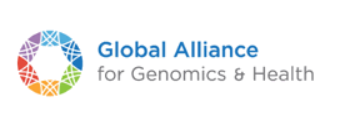
Connected Health Cluster (ECHC) involves 40+ health companies (startups, health IT, medtech, biotech and pharma), R&D partners and user groups (hospitals, GPs, sportsmen, spas, quantified self people) in Estonia. The competence of the cluster fields in products and connected services improving healthier lifestyle, sports, wellness, prevention, prognostics, diagnostics, cure and rehabilitation. The Estonian Genome Centre as a leading research and development institution in the personalized health area is the cluster member since 2015. ECHC is part of the European Connected Health Alliance and ScanBalt network which helps to accelerate global access for the Estonian cluster members.
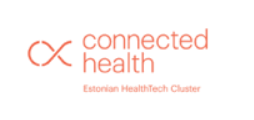
Institute of Genomics participates also in many phenotype-driven and genetic epidemiological consortia:
The Genetic Investigation of ANthropometric Traits (GIANT) consortium is an international collaboration that seeks to identify genetic loci that modulate human body size and shape, including height and measures of obesity. The GIANT consortium is a collaboration between investigators from many different groups, institutions, countries, and studies, and the results represent their combined efforts. Thus far, the GIANT consortium has identified common genetic variants at hundreds of loci that are associated with anthropometric traits.
Cohorts for Heart and Aging Research in Genomic Epidemiology (CHARGE) consortium was formed to facilitate genome-wide association study meta-analyses and replication opportunities among multiple large and well-phenotyped longitudinal cohort studies.
European Network for Genetic and Genomic Epidemiology (ENGAGE) was funded by the European Commission under the 7th Framework Programme-Health Theme. The ENGAGE Consortium has brought together 24 leading research organizations and two biotechnology and pharmaceutical companies across Europe and in Canada and Australia. ENGAGE aims to translate the wealth of data emerging from large-scale research in genetic and genomic epidemiology from European (and other) population cohorts into information relevant to future clinical applications. The concept of ENGAGE is to enable European researchers to identify large numbers of novel susceptibility genes that influence metabolic, behavioural and cardiovascular traits, and to study the interactions between genes and life style factors.
The DIAbetes Genetics Replication And Meta-analysis consortium (DIAGRAM) is a grouping of researchers with shared interests in performing large-scale studies to characterise the genetic basis of type 2 diabetes, and a principal focus on samples of European descent.
Meta-Analyses of Glucose and Insulin-related traits consortium (MAGIC) represents a collaborative effort to combine data from multiple GWAS to identify additional loci that impact on glycemic and metabolic traits. Through these efforts, dozens of loci influencing these traits have been identified, a subset of which also influences the risk of type 2 diabetes.
Coronary ARtery DIsease Genome-wide Replication And Metaanalysis (CARDIoGRAM) consortium represents a collaborative effort to combine data from multiple large scale genetic studies to identify risk loci for coronary artery disease and myocardial infarction.
The Psychiatric Genomics Consortium (PGC) is one of the largest and most innovative and productive experiments in the history of psychiatry. The central idea of the PGC is to leverage global collaboration to advance genetic discovery of biologically, clinically, and therapeutically meaningful insights. The PGC consists of 800+ investigators from 150+ institutions in 40+ countries. The PGC studies 11 psychiatric disorders including ADHD, Alzheimer’s disease, autism, bipolar disorder, eating disorders, major depressive disorder, obsessive-compulsive disorder/Tourette syndrome, post-traumatic stress disorder, schizophrenia, substance use disorders, and all other anxiety disorders. These psychiatric disorders have exceptionally high morbidity, mortality, and personal/societal costs. As nearly all are syndromes that lack pathological or biological defining features, understanding their genetic basis is one of the most significant problems in medicine. Representatives in PGC from the Institute of Genomics are Lili Milan & Kelli Lehto.
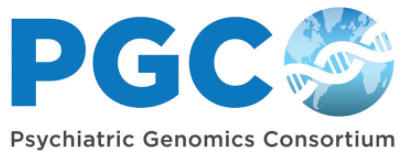
eQTLGen Consortium has been set up to identify the downstream consequences of trait-related genetic variants. The consortium incorporates 37 datasets, with a total of 31,684 individuals. Representatives in the consortium from institute of Genomics are Tõnu Esko, Urmo Võsa, Lili Milani, Viktorija Kukushkina.
Nordic Collaboration for Women’s and Reproductive Health (NCWRH) brings together researchers in Finland, Denmark, Norway, Sweden, UK and Estonia to promote the genetic and other ‘omics’ studies in reproductive health. The representative of the Institute of Genomics in the consortium is associate professor Triin Laisk.
European Health Psychology Society (EHPS) is a professional organisation formed to promote empirical and theoretical research in and applications of health psychology within Europe as well as the interchange of information related to health psychology with other associations throughout the world. The representative in EHPS from the Institute of Genomics is Silja-Riin Voolma.
Global Association of Applied Behavioral Scientists (GAABS) is the world’s first independent organisation representing the interests of applied behavioural scientists, primarily working in the private sector. GAABS has a clear scientific, social and non-commercial purpose. Membership is open to both individuals and organisations working in applied behavioural science. The representative in GAABS from the Institute of Genomics is Silja-Riin Voolma.
The representative in the society from the Institute of Genomics is Silja-Riin Voolma. In Singapore, obesity and other lifestyle-related diseases such as diabetes, cancer and hypertension have risen rapidly. The National Health Surveillance survey conducted in 2010 found that about half of Singapore residents aged 60 years and above had hypertension and about one-third had diabetes. The modifiable factors to arrest the rapidly increasing trend in these conditions locally and worldwide are health behaviours such as physical activity, diet and screening. Health behaviours are very complex and are influenced by the interaction of the socio-cultural and physical environment and the health care system with institutional, interpersonal and individual-level factors. There is a need for a multidisciplinary and multi-sectoral approach, with researchers and practitioners from diverse disciplines such as psychology, sociology, public health, clinical medicine, dentistry, marketing, business, organizational behaviour and communications to work together to plan, implement and evaluate behavioural interventions to tackle these health problems. Recently, a core group of like-minded interested individuals met and decided to form the Society of Behavioural Health, Singapore to address these problems through awareness raising, capacity building and collaborative research and practice.

